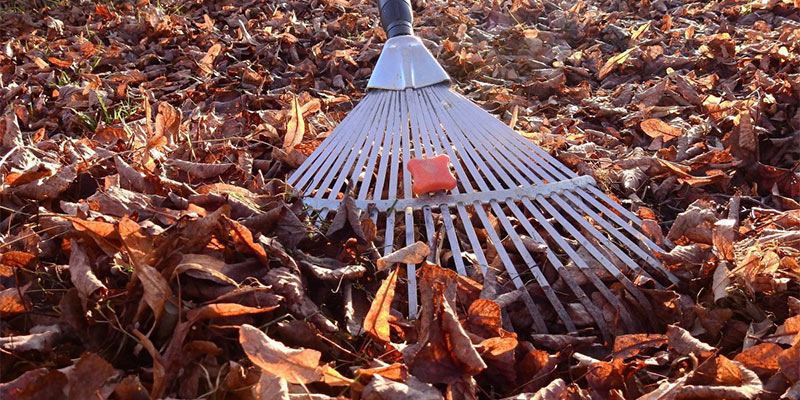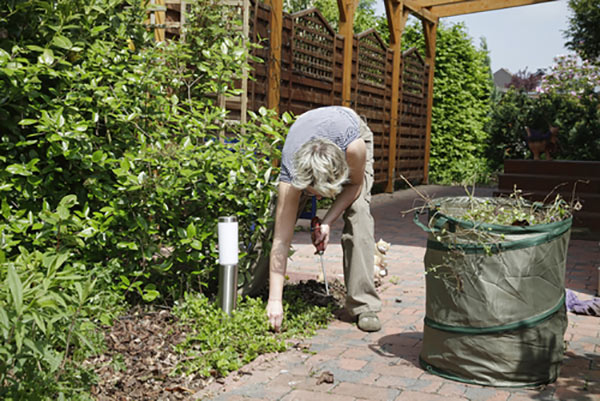
Preparing your garden for winter starts before the fall season ends. Fall garden clean up becomes a treat for spring gardening instead of a chore.
Bugs love moisture, and they lay eggs under organic debris, which can become a crisis come springtime. When you have cleaned your garden just before winter, your plants grow without disruption from bugs, diseases, or weeds when spring arrives.
Therefore, it is essential to prepare your garden for winter by following these fall garden cleanup tips:
1. Remove Leaves and Old Plants
Raking up thick layers of leaves and removing debris on your garden is important because these are where overwintering pests and insects hide. Otherwise, the leaves will suffocate and kill your grass in the spring. You can use the leaves in your garden beds as an added layer of compost or put them in your compost bin.
Rake up the leaves on your garden decks as well. To know more about how to clean your deck, look for websites that offer professional deck cleaning services.
Moreover, old or spent plant materials should be uprooted from the soil. Here are benefits of removing old plants from the soil:
- Removing and burying healthy spent plants in garden trenches prevent pests from growing throughout the winter.
- Burying old plants improve soil tilth and health.
- It removes and prevents remnants of diseases from affecting next season’s garden.
2. Remove Weeds
Weeding is an all-year-round battle, especially for perennials and winter annuals. They sink roots and return year after year; therefore, it’s best to control them in early fall. One weed left can mature and produce hundreds of seeds that can plague your garden the next season.
Weeds are parasites and starve plants aside from competing for space to grow. To prevent damage of plants in your garden, keep it clear of weeds. If you have plans of revamping your patio and are already looking for some patio furniture inspiration, it’s important to keep the space free of weeds, too.
Here are easy ways to remove perennial and winter annual weeds on your garden:
- Hand weed perennial weeds to pull out the whole plant and root system.
- Use herbicides for tough perennial weeds like bramble, poison ivy, and ground ivy.
- Hoeing, hand pulling, and tilling can easily remove annual winter weeds aside from keeping your lawn clean all year round
3. Add Compost
Garden cleanup includes composting. With compost or mulch, you can keep your plants safe and warm during winter. It will help nourish your soil and top up your garden beds. Moreover, it refreshes and renews your soil when spring comes around.
You can use non-weed plant matter, autumn leaves, sawdust, straw, or other active green matter as compost.
To have active compost during the winter, you can use the following basic composting methods:
- Compost Tumblers – the most efficient closed-bin system that makes it easy to move and mix compost because of its self-containment
- Compost Bins – cheap closed-bin compost digester that sits directly on the ground and scraps are added from the top and removed from the bottom when finished
- Compost Piles – simplest composting system as it’s done by piling twigs, twigs, or straw on the ground and then adding layers with grass clippings, dried leaves, wood ash, etc.
4. Till the Soil
Till your soil at the end of the season and do it after adding layers of compost on your garden. This helps improve drainage before the extreme weather and busy seasons and adds nutrients needed for springtime gardening.
Loosening your soil must not be done during rainy season as it increases erosion and destroys worm tunnels that hold the soil together. Excessive tilling is not advisable as it compacts your soil instead of breaking it up.
Here are some tips to till your garden:
- Mark the areas where you’ll till your soil.
- Start at one end of the area and go across it one row at a time.
- Till slowly; don’t rush.
- Till each row once and don’t go back over it.
5. Clean Gardening Tools
Cleaning and sharpening your gardening tools is important especially when you work on many sturdy plants. Although it’s common that your tools are muddy and rusty, not cleaning them will lead to dullness and brittleness.
Keeping your gardening tools in top shape helps extend their life. Moreover, cleaning your tools such as your trowel prevents the spread of diseases or bacteria around your garden.
Follow these tips when cleaning your gardening tools:
- Wear gloves and protective eyewear to avoid accidentally harming yourself.
- Use a wire brush for large tools and fine steel for small tools.
- Maintain the original angle of your tools by using whetstone or file when sharpening.
- Use linseed oil for wooden handles and oil for metal parts to condition them.
Conclusion
Gardening is a year-long task even after summer or spring season. Fall and winter don’t mean leaving your garden on its own; if this becomes a practice, you’ll have more work when spring comes. Therefore, garden cleanup for winter is necessary to have a pest or weed-free garden when the warm season sets in.


